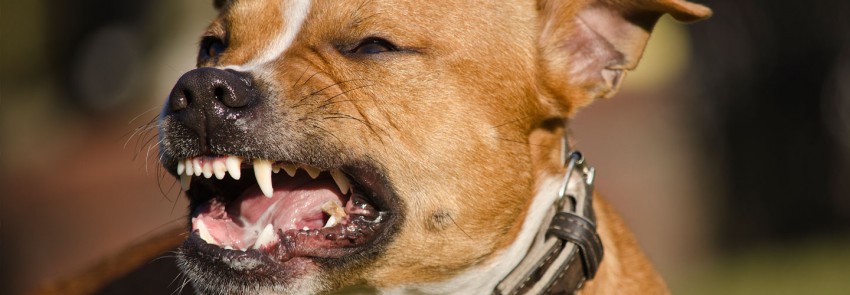Reactivity

What is reactivity? Simply, it is when a dog overreacts to certain stimuli in a way that we don't perceive as 'normal'.
This can be anything including seeing other dogs, people, kids, loud noises, bicycles, cars and unfamiliar situations, the sight of nail clippers, vet visits, the list is potentially endless.
One of the most common problems I encounter is reactivity towards other dogs, especially when out walking on lead. 'Fido' sees another dog and all of a sudden, he turns into a barking, lunging monster, pulling at the end of the lead, stops listening and the once enjoyable walk becomes a nightmare, the guardian gets frustrated and upset, the dog is already upset and often this leads to less walks or stopping altogether and the problem just becomes worse.
The most important thing to understand is that no matter what our perception is, for some reason the dog sees the object as aversive and responds emotionally with observable behaviours (barking, growling, lunging and so on).
At a base level the reaction lies in feelings of stress, anxiety or fear (along with chemical changes in the body) and factors including genetics, poor socialization, hormones, neurophysiological makeup and previous experience can all be contributing factors.
The dog is simply responding in the only way they know how as they have learned (conditioned) that if they behave in that way the 'scary thing' goes away or stops - hence the behaviour worked to reduce the feelings of fear, anxiety, unpleasantness etc.
Left unchecked this problem won't just go away but will become worse and in some cases, potentially dangerous.
Reactivity is not a quick fix, we need to change the way the dog perceives the threat (changing the emotional response) and this takes time, patience and commitment.
Using aversive methods such as yelling, yanking the lead, 'alpha rollover', shock and prong collars actually add to the emotional state, not reverse it, whilst some may seem to 'work' initially as the 'behaviour' disappears, all that has happened is the dog has learned that if it shows these reactions more bad things happen from his or her guardian, so the dog is actually now more stressed.
What we need to do is help the dog to feel safe (and not increase the anxiety) by working with the dog to change his or her emotional response.
This involves a management and behavioural modification training plan, long with patience and commitment from the guardian.
Please contact me to discuss your particular situation.
Consult Pricing (single dog): Initial $200.00 (approximately 2 hours) Follow-up $ 135.00 (approximately 1.5 hours) These include an initial comprehensive behaviour report and training plan tailored to you and your dog which we review at each follow up consult and adjust as we progress to you and your dog's goals.
Perth, Western Australia, Mobile: 0429 116 071, Email: info@123paw.com.au
Nexus Themes | 123paw.com.au
